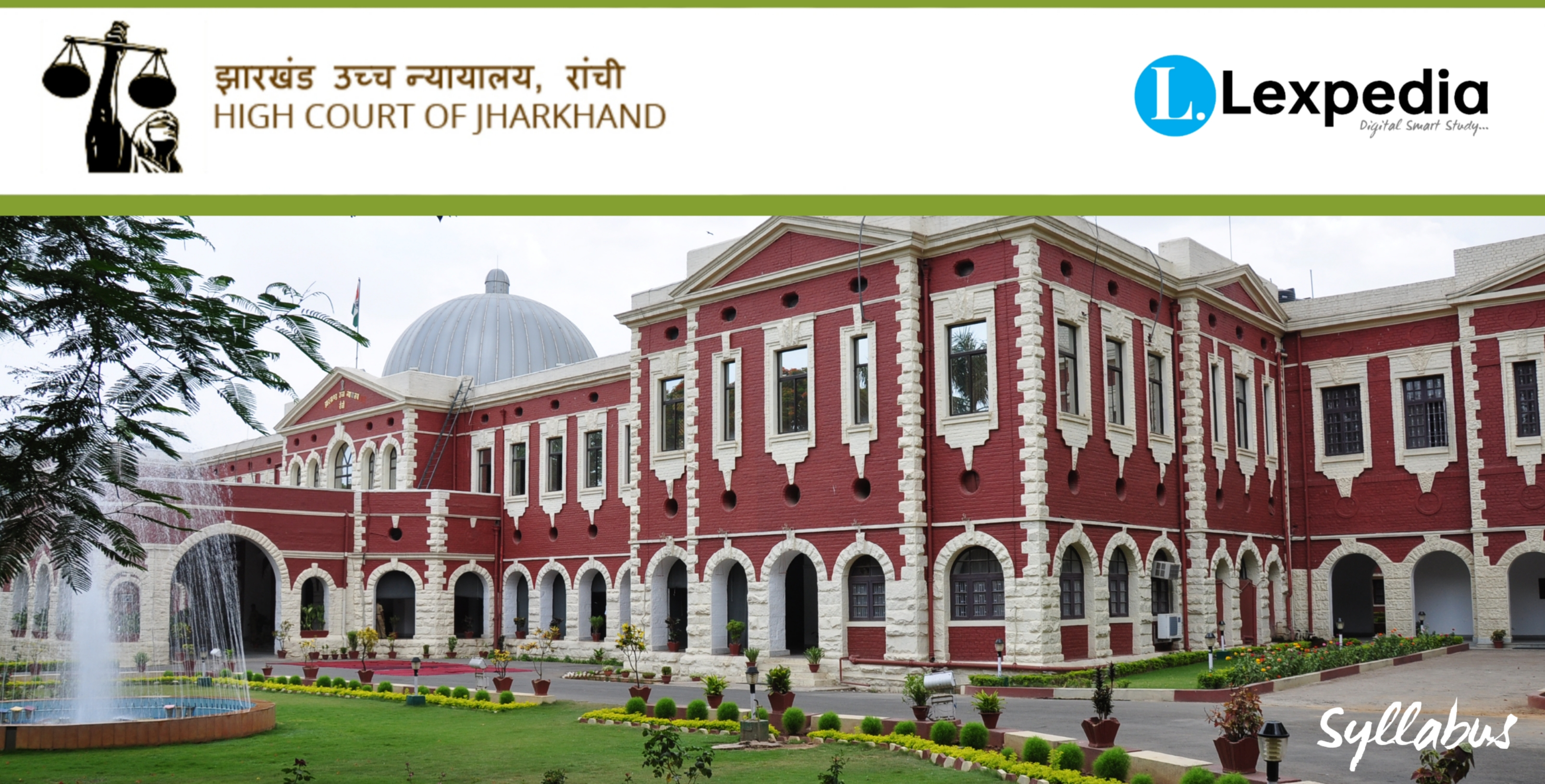Syllabus


JHARKHAND ASSISTANT PROSECUTING OFFICER SYLLABUS
- Paper I General studies 100 marks
- Paper II Legal subject 200 marks
- 2 hours duration for each paper.
- Age Limit: -
- General Category : 21 years- 35 years.
- Backward Class/Extremely backward class. : upper age limit of 37 years.
- Female (Unreserved/Backward class/Extremely backward Class): upper age limit 38 years.
SYLLABUS FOR PRELIMINARY EXAMINATION
PAPER I GENERAL STUDIES
- National and International Events in General Studies
- History of India
- General questions related to Geography, Indian Economy, Political System and General Science.
- Modern Historical Facts, geography, economy and culture of Jharkhand State.
PAPER II LEGAL STUDIES
- The Indian Evidence Act
- The Criminal Procedure Code
- Indian Penal Code
- Indian Constitution
SYLLABUS FOR MAIN EXAMINATION
In the main examination, there will be a 100 marks paper in any one of the following 09 regional languages prescribed by the Govt. Of Jharkhand.
- Santali Language and literature
- Mundari language and Literature.
- Khadia Language and literature
- Ho language and literature
- Kudukh Language and Literature
- Nagpuri Language and literature
- Kurmali language and Literature
- Khortha language and Literature
- Panchpargania language and literature.
Note: Marks of this paper will not be included in the main examination but the following minimum qualifying marks are required.
- General Category : 40 % marks
- Backward Class : 36.5% marks
- Backward Class Annexure I : 34% marks
- SC/ST and women : 32% marks
There will be written test and personality test (Interview) under the main test.
The written test will have the following subjects:
The written test will have the following subjects:
General Hindi : 100 marks 3 hrs
English: 100 marks 3 hrs
Essay: 100 marks 3 hrs
General Studies: 100 marks 3 hrs
Evidence and Criminal Procedure: 200 marks 3 hrs
Indian Penal Code: 200 marks 3 hrs
Indian Constitutional Law : 200 marks 3 hrs
Criminal Minor Acts: 200 marks 3 hrs
Interview : 50 marks
English: 100 marks 3 hrs
Essay: 100 marks 3 hrs
General Studies: 100 marks 3 hrs
Evidence and Criminal Procedure: 200 marks 3 hrs
Indian Penal Code: 200 marks 3 hrs
Indian Constitutional Law : 200 marks 3 hrs
Criminal Minor Acts: 200 marks 3 hrs
Interview : 50 marks
Note:
- Marks obtained in General Hindi and English subjects will not be added in the preparation of merit list But the Candidates who do not obtain 30% marks in General Hindi and English will not be considered as passed in the written examination.
- Qualifying Marks in Law subject:
General Category: 40% marks
Other backward Classes (BC-II): 36.5% marks
Backward Classes (BC-I): 34% marks
SC/ST and woman: 32% marks - In the main examination, in General Hindi and in the second Paper of English, the ability to express one’s feelings in a clear and pure form and the power of intuitive understanding will be tested. In this, essay of 20 marks, letter writing (official and semi-official) of 20 marks, grammar of 25 marks, 15 marks questions related to syntax and summarisation of 20 marks will be asked.
- There will be a total of 2 (two) sections in the third paper essay of the main examination, in which one section will be on Law subject and the second section will be based on general essay, essay will have to be written on any one of the optional subjects of each section. Each essay will be of 50-50 marks
-
Paper IV of the main examination:
Geography 10 marks
Indian Economy 10 marks
General Science 10 marks
General Studies 10 marks
National and international 10 marks
Events Modern History of India 10 marks
Indian Political System 10 marks
Junk and legal Terminology (With explanation) 25 marks
Modern History, geography, Economics and culture of Jharkhand 15 marks
In the fifth paper:
Cr.PC 125 marks
Indian Evidence Act. 75 marks
In the sixth Paper,
question of 200 marks (with problems) will be asked from the Indian Penal Code.
In the seventh Paper,
200 marks questions will be asked from the Indian Constitutional law.
In the Eighth paper
(From Criminal Minor Act),
80 marks from Group A,
60 marks from Group B, and
60 marks from Group C will be asked
In the sixth Paper,
question of 200 marks (with problems) will be asked from the Indian Penal Code.
In the seventh Paper,
200 marks questions will be asked from the Indian Constitutional law.
In the Eighth paper
(From Criminal Minor Act),
80 marks from Group A,
60 marks from Group B, and
60 marks from Group C will be asked
Related to the following subjects in the Criminal minor Act questions will be asked
Group-A: 80 marks.
Forest Act 1927
Arms Act 1959,
Explosive Substance Act,1908
Criminal Law Amndt. Act 1908 and Unlawful Activities (prevention) Act,1967
Motor Vehicle Act,1988
Group-B: 60 marks.
Electricity Act 2003
Information Technology Act, 2000
Prevention of Corruption Act 1988 and Bihar/Jharkhand Prevention of specified corruption Act, 1983
Prevention of Food Adulteration Act, 1954
Group-C: 60 marks.
Essential Commodities Act,1955
Dowry Prohibition Act, 1961
Schedule Caste and Scheduled Tribe (Prevention Of Atrocities Act) 1989
Juvenile Justice Act 2000, (Care and Protection of Children) Act 2000
Group-A: 80 marks.
Group-B: 60 marks.
Information Technology Act, 2000
Group-C: 60 marks.
The question paper for all the examinations will be in both Hindi and English languages (Except General Hindi and English) and the candidates will have the option to answer the questions in either language. It will be mandatory to write the first paper in normal Hindi Devanagari script and the second paper in English subject in Roman Script. For the remaining letters, there will be an option of Devnagari or Roman script.
INTERVIEW – [50marks]
Personality Test, Academic knowledge, Communication skills etc.
Qualification:
The candidate must possess a bachelor’s degree in Law, which is essential for registration in the court to practice as an advocate.
Candidate must also possess an additional qualification in certified computer operations.
Qualification:





